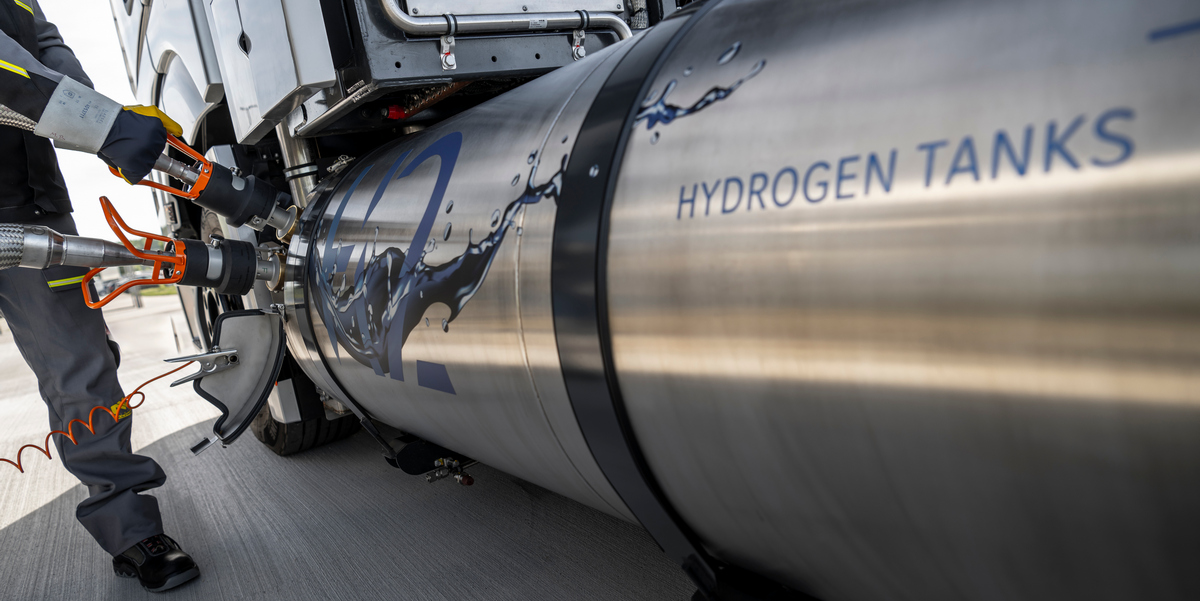Laurence Boisramé, global director of hydrogen at Bureau Veritas, says that Europe is developing a set of measures that could increase its industrial and commercial weight in the global hydrogen market.
Despite some delays in production, Europe is reportedly “still in the race.” Boisramé explained that a clear policy push is leading to significant advancements in the European Union and the United States. She noted European measures such as RePowerEU and the Fit for 55 package, but also the definition of “clean hydrogen” and the Inflation Reduction Act (IRA) in the United States.
“After the IRA announcement, some players have questioned the industrial and commercial leadership of Europe. Latest initiatives such as H2Global and more recently announced European Hydrogen Bank are instrumental to the development of production and commercialization of green hydrogen and derivatives,” Boisramé told pv magazine. “On the legal side, [the non-biological origin] definition is also a major milestone. Despite one can criticize the outcome, it provides the long-standing expected visibility.”
She said the question is whether the European definition of renewable hydrogen and derivatives, reported in the delegated act on renewable fuels of non-biological origin (RFNBO), can become a global reference.
Boisramé said that standardization, transparency, clear rules and definitions are essential to increasing trust in the energy sector, even more so in the hydrogen market.
“Trust will come with real transparency, where production projects will be assessed by independent third parties providing assurance that they comply with the rules. This is where certification comes in,” she added, in reference to independent third parties such as certification bodies.
Mutual recognition will be necessary globally to create a commoditized market and allow cross-border trading. Alternatively, countries, companies, and other stakeholders have to align on standard rules at the multinational level.
“This is promoted by several global organizations such as AIE, IRENA, IPHE, and the Hydrogen Council, to name a few,” she said. “But getting to a global consensus will take time, at least a few years.”
Role of certification
The role of certification is to ensure conformity to a standard, which can be a global standard, a regulatory regime, or a voluntary scheme.
Popular content
“Currently, there is no global standard or regulatory certification scheme applying to hydrogen production worldwide,” said Boisramé. “Some countries are developing rules and certification schemes applying to domestic production, especially to grant public support.”
Bureau Veritas has developed a voluntary certification scheme to ensure that hydrogen production is safe, sustainable, and from renewable inputs, with a maximum carbon footprint of 2 kg CO2eq per kilogram of hydrogen.
“This certification scheme addresses production assets worldwide with a single methodology applying globally. Recently, the certification has been extended to ammonia produced from the conversion of renewable hydrogen,” she said, explaining that the schemes should accelerate permitting and acceptability, while fostering project bankability.
Bureau Veritas is also performing audits and inspections of suppliers to assess the supply chain's performance and resilience, decreasing the risks connected to the projects.
Boisramé noted the ongoing increase in the number of projects announced across different regions, fostered by government strategies and incentives schemes.
“However, we are far from achieving a mature industry, with a lot to be put in place such as global standards, same definitions, and rules as the basis for international trade of hydrogen and derivatives,” she said.
Boisramé also pointed to an acceleration in the number of production projects in the United States and China, despite delays in the definition of incentives supporting the demand side for green or decarbonized hydrogen.
“Other countries such as Australia, India, Spain, and the United Kingdom can see an acceleration in the number of production projects as well,” Boisramé said. “In terms of import infrastructure, Europe is the more advanced, especially northwestern Europe with import hubs (such as Rotterdam, Amsterdam, Antwerp, and Hamburg) already involved in concrete development, bilateral agreements, investing in terminals evolution to anticipate hydrogen and derivatives offloading, storage and handling.”
This content is protected by copyright and may not be reused. If you want to cooperate with us and would like to reuse some of our content, please contact: editors@pv-magazine.com.


By submitting this form you agree to pv magazine using your data for the purposes of publishing your comment.
Your personal data will only be disclosed or otherwise transmitted to third parties for the purposes of spam filtering or if this is necessary for technical maintenance of the website. Any other transfer to third parties will not take place unless this is justified on the basis of applicable data protection regulations or if pv magazine is legally obliged to do so.
You may revoke this consent at any time with effect for the future, in which case your personal data will be deleted immediately. Otherwise, your data will be deleted if pv magazine has processed your request or the purpose of data storage is fulfilled.
Further information on data privacy can be found in our Data Protection Policy.